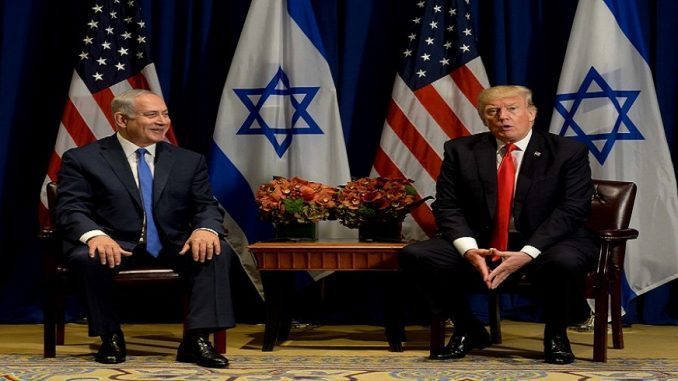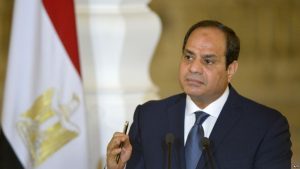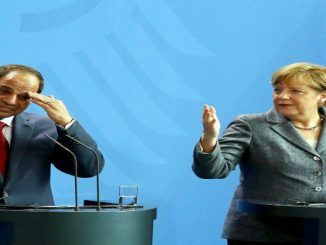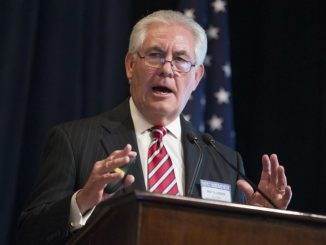

BY: Yasin Aktay*
We should not be surprised that the protests in Iran are suddenly on the entire world’s agenda. The reactions to the incidents being an expression of everybody’s sentiments, expectations and, as a matter of fact, their appetite toward Iran is quite normal. There are those who think that those who are upset about Iran causing chaos in other countries are being warned by a sort of divine blow, those who interpret the situation in this way and, as a matter of fact, those who expect to receive glad tidings in this way. However, the displays of pleasure by the U.S. and Israel in relation to these incidents naturally lead to mixed emotions.
I do not think anyone in the ummah would want to share the same feelings with the U.S. and Israel these days. Of course, such expectations and emotional approaches make it difficult to understand what has been happening in Iran. They turn speculation into an expression of wishes, and all speculation and analyses go on record as data to understanding the desires regarding Iran.

Of course, those who wish may want Iran to learn some lessons from this situation, but it is neither the time nor place for this.
Similar to other places, Iran has a dynamic sociology, and of course, the missions Iran has undertaken in the international plan is going to have reflections on that sociology. We know that the Iranian public is not on the same emotional and wavelength with the Iranian regime. As a matter of fact, the 40-year practice of the revolution is increasingly distancing its own people and making them hate it.
In addition to this, there is another community that will stand against these protests and protect its state and its stability. In other words, Iran does not consist solely of the protesters we have recently been seeing in squares. There is another mass that is against that protesting, opposition public that is just as organized and has complete faith in the revolution’s beliefs and goals. Hence, it needs to be perceived that those who want to achieve results with such mass demonstrations do not take this dynamic in Iran into much consideration.
Essentially, the meaning attributed to the demonstrators in the Gezi Park incidents through the media was that they represented the whole of Turkey. While President Recep Tayyip Erdoğan said, “We are hardly keeping 50 percent in their homes,” he was challenging nothing other than this all-inclusive “Turkish public” perception and instrumentalization.
With the massive rallies he held with crowds he shortly gathered, not against the protesters but at different squares, he displayed that he was not bluffing, hence the enthusiasm of those who wanted to topple him through public protests was short lived.
Let us accept that public demonstrations are basically one of democracy’s sacred values.
Of course, gathering crowds is one thing, but whether it is enough to change a government, another similar or greater crowd gathering against it, or whether that first protesting crowd can adequately unite to make this change through other power elements is another. A crowd tenfold of that which gathered in Tahrir, Egypt gathered in Rabaa square and rallied for 40 days, but because the first crowd had both the military and supposedly the international community behind it, that relatively small crowd was considered the demand for a democratic transformation. This is all fine, but this entire process was unlawful, and of course, it did not change the fact that the process was a coup, but let’s move on.
The support given by U.S. President Donald Trump and Israeli Prime Minister Benjamin Netanyahu to the protests in Iran eliminates the legitimacy of these protests, and even if there was a legitimate aspect to it, it evades that too.
Trump, who is able to think of gathering the U.N. Security Council for an emergency assembly regarding the incidents in Iran, while maintaining his silence on the unlawful and quick executions in Egypt in the same days, must also be noted somewhere.
Tens of thousands of people being held in prisons in Egypt under heavy conditions, being tortured and deprived of the most basic rights after the coup is now one of the routine topics of human rights reports.

We received word on Jan. 2 that five people were quietly executed. Just before this, 15 people were executed in two weeks alone. The common point in all of the executions is that none of them was interrogated or had a proper prosecution. The defendants are found guilty of any action with quickly gathered or made-up evidence, and the execution punishments that are disproportionate to the crimes attributed to them are carried out.
As a matter of fact, prison conditions is a sort of real Survivor atmosphere. It doesn’t seem like the prisoners could remain alive for long under those conditions anyway. By quickly applying execution sentences to those remaining alive, the death machine is accelerated a little more.
If the U.N. Security Council still maintains its mission to act in the name of humanity, even in the slightest, this is the actual situation that requires action being taken, but the UN is not moving a muscle.
Neither Trump nor any other U.N. Security Council member is asking any question or showing any interest in relation to what is happening in Egypt and Egyptian prisons.
Why would the U.S. and Israel want change in Iran? For more democracy? Please, don’t make me laugh. What do they have to do with democracy?
Of course, God wasn’t the one that wrote democracy, the human rights and freedoms they talk about; they made this obligatory upon themselves. If only they abided by these words that they made up and made obligatory, just like the men of religion who made priesthood obligatory upon themselves.
*Yasin Aktay is a member of the Turkish parliament and a leading figure of the ruling Justice and Development (AK Party) in Turkey. (Published in Yeni Şafak Turkısh newspaper January 06 2018)



